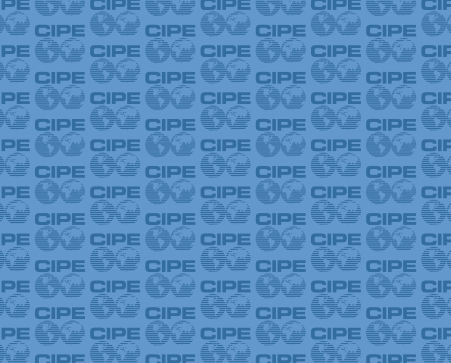
As part of the American Enterprise Institute‘s Philanthropic Freedom Project, AEI President Arthur Brooks recently interviewed Microsoft co-founder and philanthropist Bill Gates about the intersection between the exceptional entrepreneurial success of Microsoft and the extensive charitable contributions of the Bill and Melinda Gates Foundation.
When asked about how a free market supports philanthropy, Gates explained that effective governments have the capacity to implement social services and deliver necessary support to citizens, but lack the resources to improve upon goods and delivery mechanisms. Taking on the expensive risk of such innovation therefore falls to the private sector, which has a financial incentive to invest in what would otherwise become a market failure.
However, sometimes needed goods are not lucrative for private enterprise to invest in, either. Gates offered the example of anti-malarial medicine research, which proves to be an undesirable field for pharmaceutical companies to invest in due to the inability of most people in malaria-affected countries to afford these medicines at the costs required to support such an expensive research effort. This is the space in a free market where philanthropic efforts, such as those of the Bill and Melinda Gates Foundation, step in to provide research and development assistance that will hopefully produce a cheaper and more effective product. Here in America, Bill and Melinda Gates have chosen to focus their efforts on educational reform and fostering support for innovation. Attributing their own success to an American education that encouraged creativity and entrepreneurship, Gates acknowledged that his education proved useful because he operated within a system that protected his intellectual property rights. As was similarly discussed on a recent AEI panel with His Holiness the Dalai Lama, a system that enables current and future generations to sustain and improve quality of life must consider how each citizen has the opportunity to experience the joy of achievement and know their hard work amounts to something.
Without establishing a system that appreciates, rewards, and protects such efforts, incentives can give way to inefficiency. Those who defend free markets point to how market exchange promotes a mutual respect for others’ talent, energy, and hard work that delivers the fruits of success to those with the resources to compete.
The obstacle lies in finite resources. How does a society create a level playing field that grants such opportunities for success to all, yet maintain the resources to compensate each achievement and foster the necessary competition to sustain the system? Reaching this balance requires a learning process unique to each country and respectful of the cultural and environmental nuances that make a free market dynamic via comparative advantage.
Where we supporters of this learning process here at CIPE come into play is by raising these issues to our partners on the ground and urging them to search for their own answers. By fostering inclusive discussions that involve local policymakers, civil society members, and private sector representatives, the spectrum of economic stakeholders can work together to answer this fundamental question: How can we improve access to opportunity for each citizen? Is it through empowering women to pursue their entrepreneurial dreams the way our partners have in Peru? Is it through improving local governance like our counterparts in Afghanistan?
By solidifying the institutions that inspire drive and creativity, crucial factors such as education, communication, and risk-taking emerge and can eventually sustain a society oriented toward local problem-solving.
Rogan Motis is a Program Assistant for the Middle East & North Africa at CIPE.
Published Date: March 20, 2014